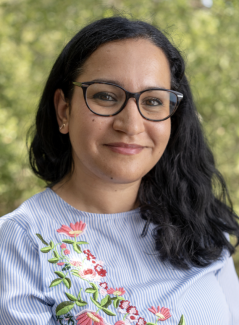Event

This talk examines the celebration of Purim in early modern Italy and the emergence of local Purims, unique commemorations established by Jewish communities to mark moments of deliverance from persecution and existential threats. While the festival of Purim celebrates the events narrated in the Book of Esther (Megillat Esther), local Purims—sometimes called Purim shenì ("Second Purim")—developed in response to regional crises and miraculous salvation. These celebrations not only reinforced communal cohesion but also served as acts of collective memory and resilience in times of peril and uncertainty. By analyzing historical sources and richly decorated Esther scrolls, this talk will explore both the material culture surrounding Purim observances and the broader social and political significance of these celebrations in early modern Italy.
Light reception to follow.
Speaker:
Martina Mampieri is a Marie-Skłodowska-Curie Global Fellow at the University of Pennsylvania and the University of Modena and Reggio Emilia under the supervision of Prof. Joshua Teplitsky and Prof. Matteo Al Kalak. She earned a double PhD in History and Jewish Studies from the University of Roma Tre and the University of Hamburg. She received fellowships from the Hebrew University of Jerusalem, the University of Oxford, Harvard University, the University of Göttingen, the American Jewish Archives and the Rothschild Foundation among others. She is the author of Living under the Evil Pope: The Hebrew Chronicle of Pope Paul IV by Benjamin Neḥemiah ben Elnathan from Civitanova Marche (16th cent.), published by Brill in 2020, and several articles on Jewish cultural and religious history in the early modern and modern periods.. She is currently working on her second book, a biography of the historian and bibliophile Isaiah Sonne (1887-1960). At Penn, she is working on her new project titled BookSHUK: The International Market of Jewish Manuscripts and Books (1900-1948), which aims at reconstructing the paths of Italian Jewish manuscripts and early printed books between Europe, Israel, and the United States.
Sponsors:
The Kutchin Seminar Series in the Jewish Studies Program, in collaboration with the Center for Italian Studies, the Department of History, Global Medieval and Renaissance Studies, and the Department of Religious Studies.
